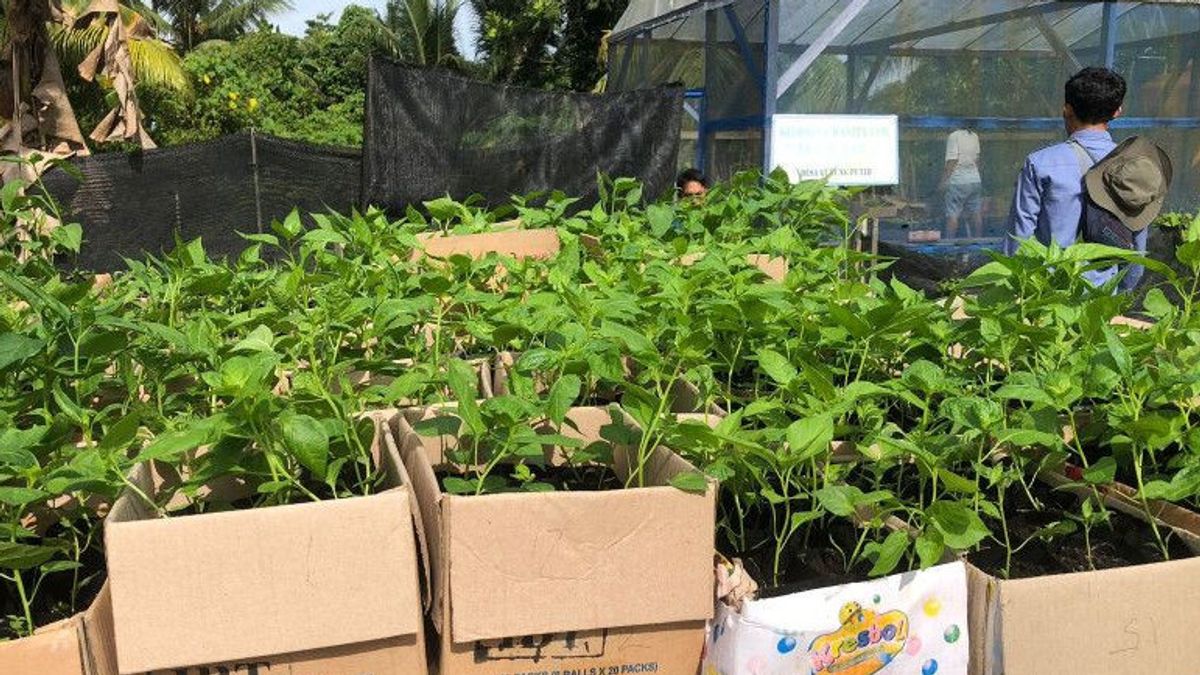TANJUNG SELOR- North Kalimantan Province (Kaltara) has a surplus of cayenne pepper until May 2023 based on records from the Ministry of Agriculture, while other provinces in Kalimantan are expected to experience a deficit.
"Thank God we managed to have a surplus of cayenne pepper thanks to the massive distribution of ready-to-plant seeds to the community which we have been carrying out since October 2022, both through the APBD and APBN," said Suhaeli, Food Security Analyst Young Expert at the Kaltara Agriculture and Food Security Service, in Tanjung Selor, reported by ANTARA, Monday, February 20.
The Director General of Horticulture, Ministry of Agriculture, Prihasto Setyanto, during a virtual regional inflation control coordination meeting in Jakarta, Monday (20/2), revealed that only the North Kalimantan Province has a surplus of cayenne pepper on Kalimantan Island. Meanwhile, four other provinces experienced a deficit.
Five months in 2023 (January-May), the Directorate General of Horticulture at the Ministry of Agriculture recorded a deficit of cayenne pepper in West Kalimantan, with details of 1,280 tons (January), 1,119 tons (February), 1,381 tons (March), 1,417 tons (April), and 1,358 tonnes (May).
Central Kalimantan with details of a deficit of 455 tons (January), 324 tons (February), 435 tons (March), 482 tons (April), and 449 tons (May).
Baca juga:
- Polri Sebut Dosen UII Tidak Hilang, Tapi Sengaja Menghilang dengan Ubah Rute
- Tim SAR Capai Lokasi Kecelakaan Helikopter Kapolda Jambi, Mulai Berupaya Evakuasi
- Brimob Kawal Ketat Proses Bupati Nonaktif Mamberamo Tengah Dibawa ke Jakarta
- Siap Berikan Bantuan Jangka Panjang untuk Pemulihan Turki, Menlu Blinken: Amerika Serikat Ada di Sini
Then, South Kalimantan experienced a deficit of 115 tons (January), 165 tons (February), 430 tons (March), 448 tons (April), and 474 tons (May). Meanwhile, East Kalimantan had a deficit of 706 tons (January), 625 tons (February), 850 tons (March), 654 tons (April), and 648 tons (May).
The record surplus of cayenne pepper in Kaltara, namely 216 tons (January), 185 tons (February), 168 tons (March), 102 tons (April), and 78 tons (May).
"In general, cayenne pepper is still a surplus of 92,402 tons nationally," he said.
Through the map of the early warning system (EWS), the Directorate of Horticulture hopes that it will be of concern to stakeholders, especially heads of regional governors, regents/mayors to see the situation and conditions, so that they can encourage the planting of cayenne pepper.
"We also forward this EWS to all regional heads, both provinces and districts/cities," he said.
The English, Chinese, Japanese, Arabic, and French versions are automatically generated by the AI. So there may still be inaccuracies in translating, please always see Indonesian as our main language. (system supported by DigitalSiber.id)













